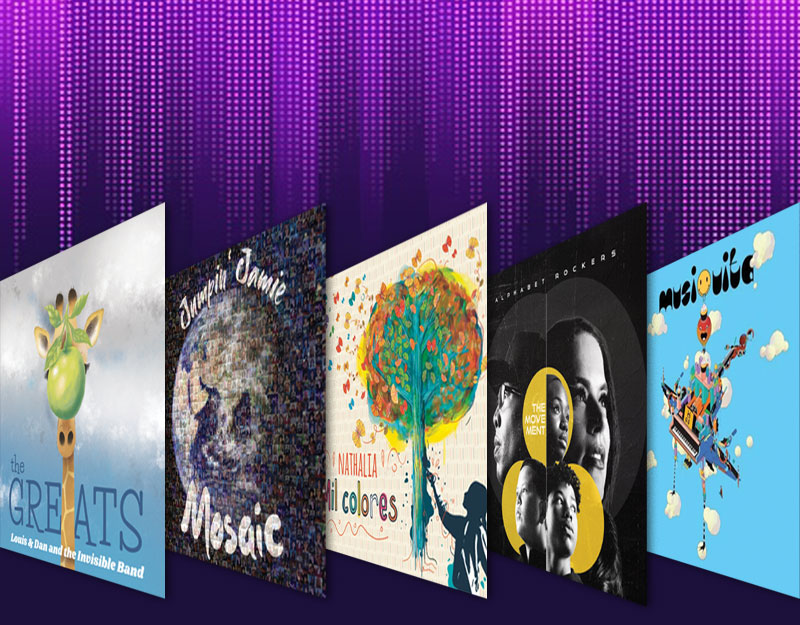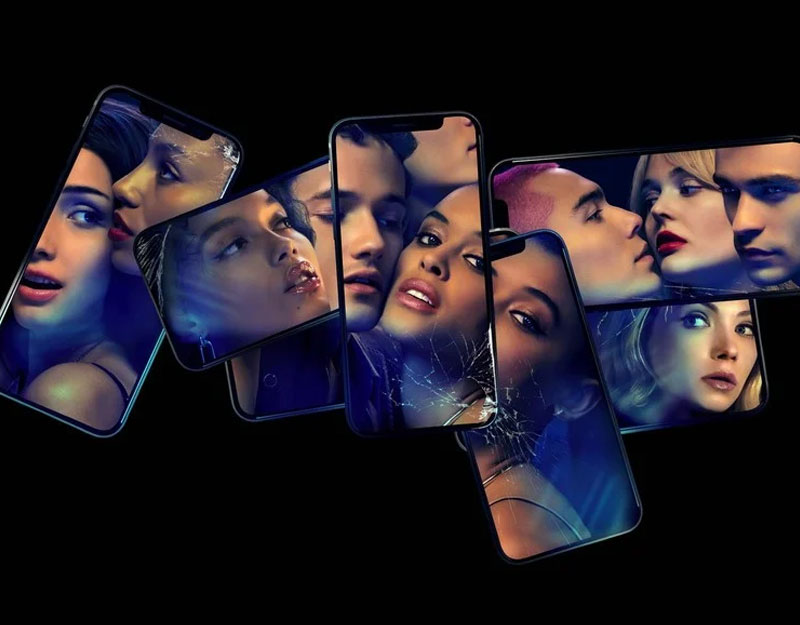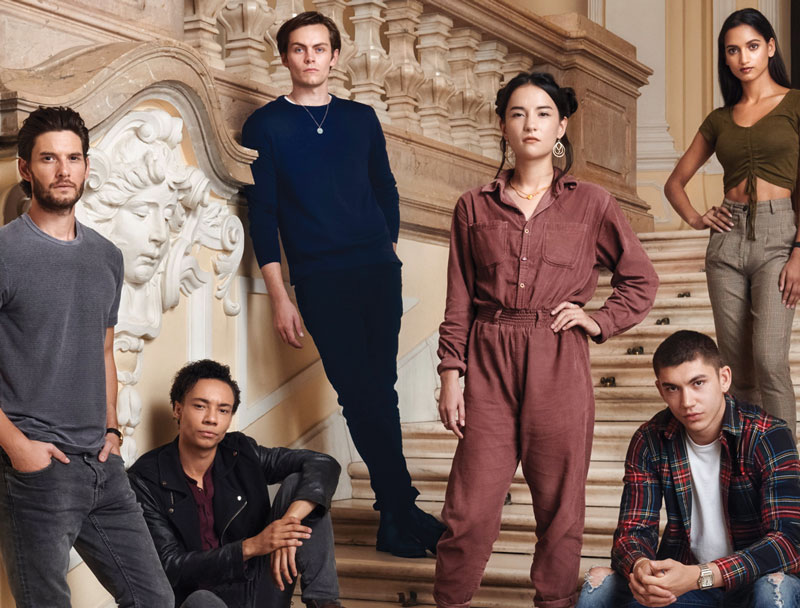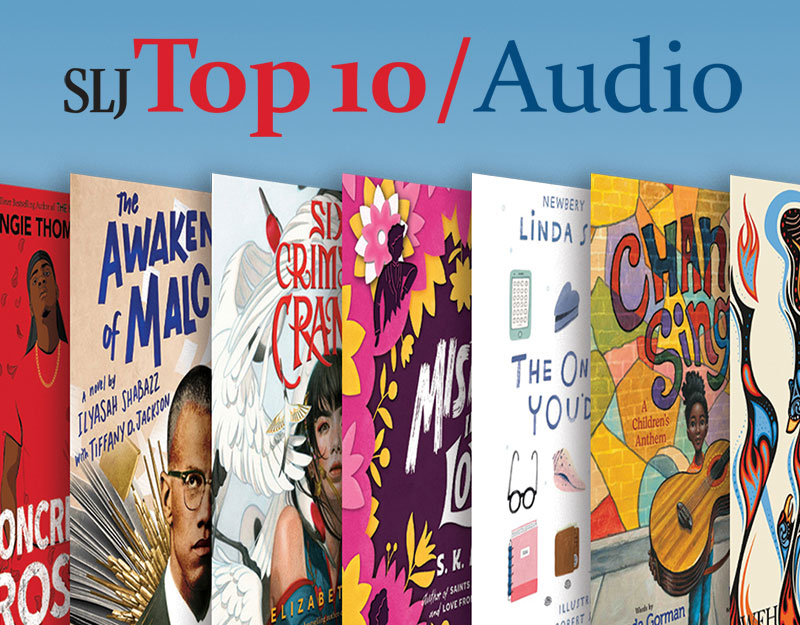The Sun Does Shine: How Does an Adult Title Get Adapted for Young People? A Talk with Olugbemisola Ruday-Perkovich and Anthony Ray Hinton
I’m perpetually fascinated by the process that adapts a book intended for an adult audience to a younger reader format. It seems to me that this is done poorly more often than it’s done well. There is, you see, a sort of art to it. A symbiotic relationship between the original text and the messaging that would engage young readers. But how do you tease that relationship out? How do you make it work? We’re aiming to answer such questions today.
In 1985 Anthony Ray Hinton was wrongly convicted of the murder of of two fast food restaurant managers in Birmingham, Alabama. Hinton was sentenced to death and held on the state’s death row for 28 years before his 2015 release. He went on to write THE SUN DOES SHINE, a title that, in its adult edition, was a New York Times bestseller and Oprah’s Book Club 2018 selection. Currently it is in the process of being adapted for film.
ADVERTISEMENT
ADVERTISEMENT
The Young Reader’s Edition of Mr. Hinton’s book is being published by Feiwel & Friends, is on sale June 14, 2022, and is intended for ages 10-14. With all that in mind, how on earth do you adapt something for audiences that young?
To answer that question, I have two guests joining me today. Author Olugbemisola Rhuday-Perkovich will be speaking to the process of adaptation and Anthony Ray Hinton to the book itself. I’m am honored to have the chance to talk with the both of them.
Betsy Bird: Anthony, thank you so much for answering my questions today. It’s been deeply satisfying to watch the reception to the original adult edition of THE SUN DOES SHINE. Between the Oprah Book Club selection and the upcoming film, it’s getting a great deal of attention. What, for you, has been the most gratifying aspect of the book’s reception?
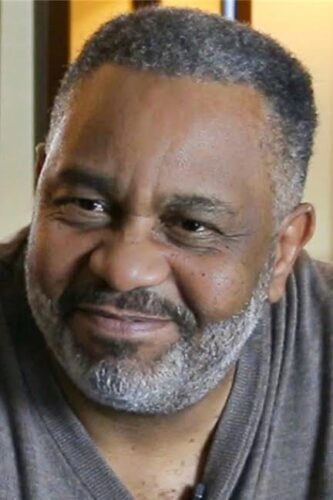
Anthony Ray Hinton: Without a doubt, the most gratifying part for me has been meeting people I wouldn’t normally have met in Alabama. Through my work at EJI as a community builder and as part of the adult book promotion, I have spent so much time on the road sharing my story at universities, high schools, libraries, conferences and in cities all around the world. After each talk, there’s always a long line of people that I get to meet. It’s hard to make sense of losing 30 years of your life, but the people I have gotten to meet, the places I have gotten to visit, and the people who have had their eyes opened to our broken and racist criminal justice system help to make meaning of my loss.
BB: And Olugbemisola! Lord, it’s been years since I saw you, back in NYC. How the heck are you? Thank you so much for answering my questions, particularly about the adaptation of THE SUN DOES SHINE. I have so many questions for you. First and foremost, how did you get attached to this project?
Olugbemisola Rhuday-Perkovich: Hey Betsy! It has been a looooong time, for real. Our editor, Kat Brzozowski invited me on to this team, and it immediately felt like a great fit. I was already acquainted with the adult book and Mr. Hinton’s incredible story, and I’ve a family member involved in post-conviction capital case work. I jumped at the chance to do anything to share Mr. Hinton’s story with young readers. I’d also heard a lot about him from my daughter; he was her absolute favorite high school guest speaker. And from the moment I got to speak with him (over Zoom), I could instantly see why. He is a thoughtful and loving storyteller, and deeply committed to justice for all. It truly has been an honour to be involved in this project.
BB: Mr. Hinton, let’s talk about the project itself. Was the idea to adapt the book into a Young Reader’s edition yours or your publisher’s? Either way, what convinced you to create a book with young people as the audience?
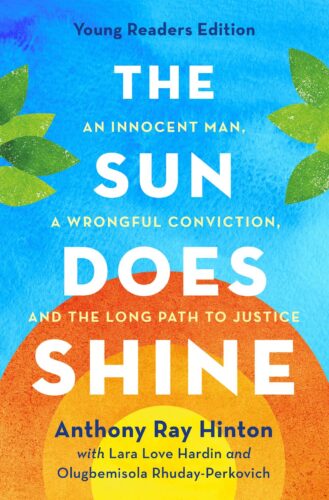
ARH: The idea was not mine – I wish I could say it was. Kat Brzozowski, my editor at Feiwel & Friends, which is part of Macmillan (my publisher for the adult book) came up with the idea and asked me what I thought. I love speaking to young people and I love exposing them to the power of story and of sharing your story – so I was all in the minute I heard the idea.
BB: Which brings up the question of process. Olugbemisola, there’s such a wide variety of types of “Young Reader Editions” coming out these days. Some take meticulous care while others feel slapped together haphazardly. When you were working on this one, what were the core ideas you knew you had to get across, no matter what?
ORP: I tried to use some additional framing and information throughout the book to make it clear that Mr. Hinton’s horrific experience in the criminal justice system wasn’t an anomaly, to show the many obstacles to fairness in our justice system, to make plain the racism embedded in it, and give readers an opportunity to question and examine the purpose and reality of incarceration in this country.
I wanted to highlight Mr. Hinton’s vivid picture of the community that was built in the prison against all odds, and their resistance to dehumanization. Throughout, he tells a story of human beings, with feelings, family, friends, flaws; who had dreams and lived nightmares. I wanted to make sure that humanity was amplified. And then what he did to get that book club going, and what that club did for the men in that prison was so compelling–such a testament to the supernatural healing power of story. I thought that was vital to share.
BB: Particularly right now. I’d say the timing is exactly right. Mr. Hinton, periodically, America goes through waves of censorship. We had it with the “Moral Majority” and the Tea Party. Now we have it with the “anti-CRT” crowd, trying to remove books that cast any kind of a critical light on America. Your edition for young readers is coming out right in the midst of this. With that in mind, why do you personally think it’s important to get this book into the hands of young people? What do you want them to take away from it?
ARH: I don’t believe in censorship. On death row, at first we were not allowed to read any books, which is censorship at its most extreme. We don’t heal or learn from our history by ignoring it, by censoring it, by not engaging with it. When we were allowed to have book club on death row and the men were able to read amazing stories it was mind opening, it was perspective shifting, and it was the best form of escape. Imagination is what got me through 30 years in prison as an innocent man, and imagination is what helps young readers learn about people different than them. Books are the best way to hack empathy. I may not have been raised like you or taught to believe the things that you believe, but if I read a book I can understand a different perspective. Young readers are our future politicians and our future voters. If they don’t know the honest truth, how can they make change? How can they create a world where equal justice is the norm not the exception for people of color? And for people who are in the justice system and don’t have the money to hire a good lawyer. Justice is supposed to be blind — but it’s not. It knows the color of your skin and the amount of money you have in the bank, and that’s how justice is determined. What happened to me should never happen to another person. But it has, it does, and it will – especially if we don’t face the truth of our past.
BB: And the original conveyed that and more. Olugbemisola, I know a lot had to be lost in the process (though I once saw a Young Reader’s Edition of a book that was bafflingly longer than its original). Figuring out what the cut and what to keep must have been difficult, to say the least. Did you have to keep anything out of the book that you wish you could have included, but it just wasn’t practical?
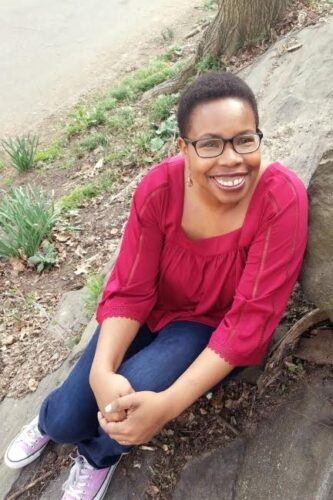
ORP: I’m always aware that what might be most compelling to adult readers is not necessarily what kids are drawn to, and I keep those kid readers foremost in my mind, so I did pay extra attention to some of Mr. Hinton’s childhood experiences, and his deeply meaningful and beautiful relationship with his mother. I thought primarily about how to retain the integrity of the story even if I wasn’t including every detail. The adult book doesn’t shy away from honest and graphic depictions of the brutality of the prison system; Mr. Hinton also had such a rich interior life that acted as a sort of armor over those decades. I tried to give a clear sense of what he shared in the adult book without necessarily spelling everything out. There was also a lot of legal and technical language that I revised or cut, especially because I was adding information in other areas. I’m a research nerd for sure, so there was a lot of related information and history that I found but didn’t have room to include.
Mr. Hinton was very clear that he wanted this book to be of service to young people, to be an inspiration and guide; in the end, his extraordinary voice is mighty in its own right. The best thing to do was to let it shine.
BB: I love that phrase “to be of service to young people.” Let’s take that a step further. Mr. Hinton, what would you recommend that kids read after they finish your book? If they want to know more, where should they go?
ARH: I will admit, I had to ask my amazing co-writer of this edition, Olugbemisola, for the answer to this one because she writes for a younger audience and knows this world so well. So the list of books below were her suggestions. But in general, I recommend that kids just keep reading. Read everything. Write your own stories. Learn about the world. I wasn’t able to travel as a kid, we just didn’t have money for that sort of thing, but when I read books I traveled all over the world. And my imagination got so much bigger than the small community of Praco where I was growing up. Specifically, and thanks to Olugbemisola’s guidance, they could also read these books:
- See You Soon, Mariame Kaba and Bianca Diaz
- Visiting Day, Jacqueline Woodson and James Ransome
- The Awakening of Malcolm X, Ilyasah Shabazz and Tiffany D. Jackson
- We Do This ‘Til We Free Us: Abolitionist Organizing and Transforming Justice, Mariame Kaba
- The New Jim Crow, Michelle Alexander
- The Real Cost of Prisons Comix, Lois Ahrens (Editor)
BB: I wouldn’t mind seeing that as a required reading list. Olugbemisola, between writing your own books and adapting others, I don’t know where you find the time to get everything done! Do you think working on adapting this book has had any influence over your own writing or do you compartmentalize your different jobs?
ORP: Yeah…I really don’t find the time. I’m always in catch up mode! But when a project like this finds me, I have to make it work. I guess I try to compartmentalize as much as possible — right now I’m working on a sad YA novel, an upbeat middle grade, an easy reader, a crafty activity book, and a Black history collection…so my days can get a little wacky.
ADVERTISEMENT
ADVERTISEMENT
I am so grateful to have grown up in a “free range reading” environment; that’s one of the things that fueled my love of writing from a young age. While I worked on this book, I thought a lot about the first time I read The Autobiography of Malcolm X, when I was about 9. There were certainly parts of the story that made my eyes widen, but more importantly, so did my mind and my heart. The Sun Does Shine reminded me to take my work (and not myself) seriously, and to respect and trust young readers. It’s a hard and heartbreaking story in many ways, but it’s also infused with strength, imaginative thinking, resilience, even real joy. Working on The Sun Does Shine reminded me of the power of faith, affirmed my belief in the necessity of amplifying a diverse array of Black voices, and reinforced my hope that stories can be a vehicle for cultivating empathy, transforming our thinking, and ultimately building a truly just world.
BB: And on that note, Mr. Hinton, what plans do you have next? What are you working on now?
ARH: Now that things are opening up after the pandemic lock down (which I have to say was easier for me because I was on lock down for 30 years, but also hard because it brought up the time in my life when I couldn’t move freely in the world), I am back on the road meeting people, sharing my story, and working to end the death penalty. Innocent people are being put to death every year and innocent people are being put in prison — I don’t want what happened to me to happen to any of the young readers of this book — so until I am sure that will not happen, that is what I am working on every minute of every day!
BB: And Olugbemisola, finally, what do you hope kids take away from this edition?
ORP: I hope that this book and the story of Mr. Hinton’s book club build readers’ appreciation of the power of story, and the ways that it can be an important part of a process of healing and transformation. I hope that through Mr. Hinton’s story, readers will have an opportunity to think critically and ask questions about what justice means in this country, who it’s for, and how our criminal justice system has worked as a system of oppression, particularly for Black, Brown, and poor people. I hope readers think about the purpose of incarceration, about concepts of punishment, rehabilitation, and who “deserves” what. I hope that readers think less about who’s “guilty” and who’s “innocent,” but about who we are as a society, who we say we want to be, and what we can all do every day to get us there.
I thank Kelsey Marrujo and the team at Macmillan for setting this interview up. As I mentioned before THE SUN DOES SHINE: YOUNG READER’S EDITION is available June 14th. Be sure to look for it then, and a big thank you to both Mr. Hinton and Ms. Rhuday-Perkovich for taking the time to answer my questions today.
Filed under: Uncategorized
About Betsy Bird
Betsy Bird is currently the Collection Development Manager of the Evanston Public Library system and a former Materials Specialist for New York Public Library. She has served on Newbery, written for Horn Book, and has done other lovely little things that she'd love to tell you about but that she's sure you'd find more interesting to hear of in person. Her opinions are her own and do not reflect those of EPL, SLJ, or any of the other acronyms you might be able to name. Follow her on Twitter: @fuseeight.
ADVERTISEMENT
ADVERTISEMENT
SLJ Blog Network
Name That LEGO Book Cover! (#53)
Exclusive: Vol. 2 of The Weirn Books Is Coming in October | News
Fighting Public School Book Bans with the Civil Rights Act
Take Five: Middle Grade Anthologies and Short Story Collections
ADVERTISEMENT



